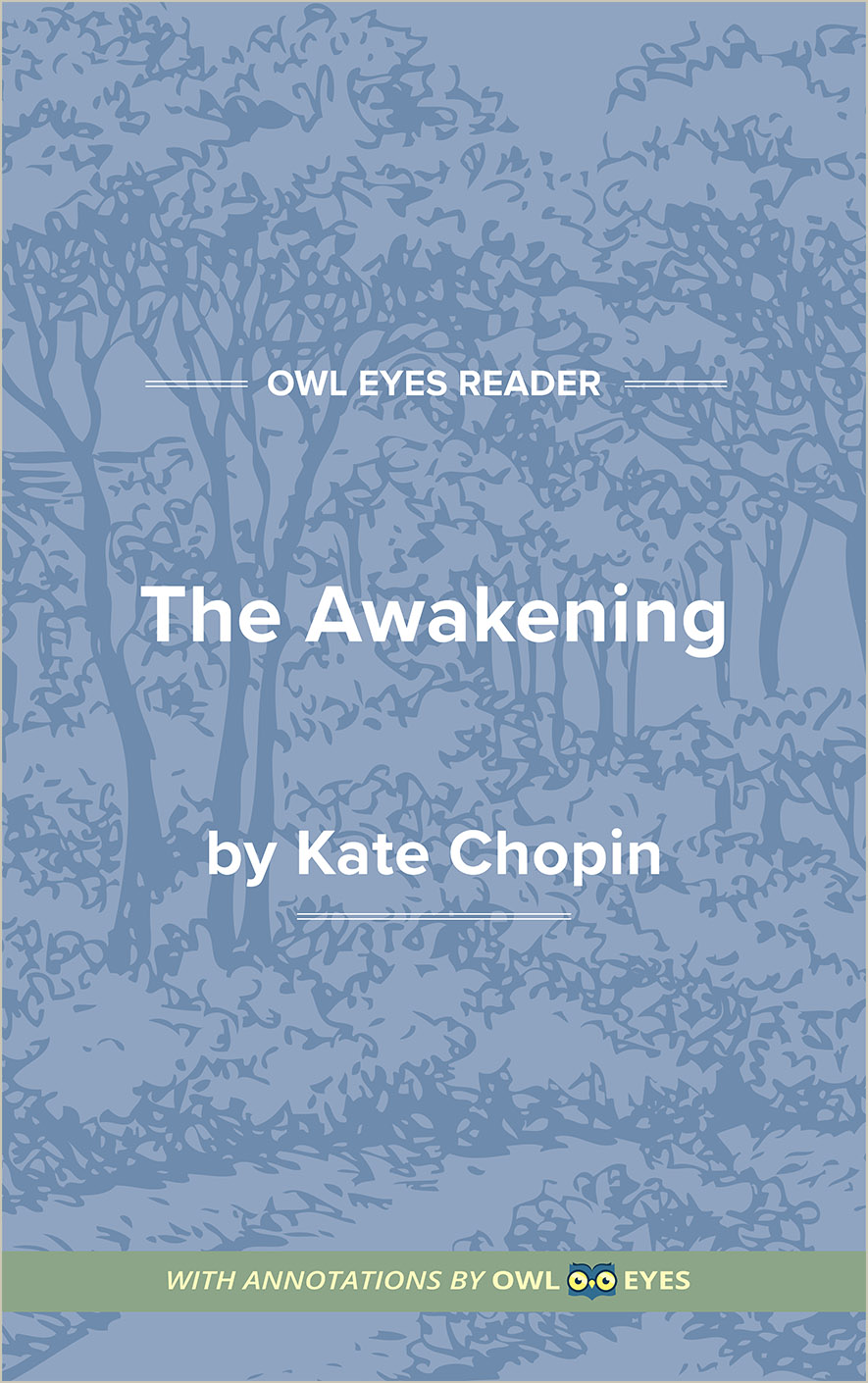Analysis Pages
Irony in The Awakening
Irony Examples in The Awakening:
Chapter III
🔒"He thought it very discouraging that his wife, who was the sole object of his existence, evinced so little interest in things which concerned him, and valued so little his conversation...." See in text (Chapter III)
Chapter IV
🔒"They were women who idolized their children, worshiped their husbands, and esteemed it a holy privilege to efface themselves as individuals and grow wings as ministering angels...." See in text (Chapter IV)
Chapter VI
🔒"This may seem like a ponderous weight of wisdom to descend upon the soul of a young woman of twenty-eight—perhaps more wisdom than the Holy Ghost is usually pleased to vouchsafe to any woman...." See in text (Chapter VI)
Chapter VII
🔒"a marriage with the tragedian..." See in text (Chapter VII)
Chapter XII
🔒"“Do I have to think of everything?—as Léonce says when he's in a bad humor. I don't blame him; he'd never be in a bad humor if it weren't for me.”..." See in text (Chapter XII)
Chapter XV
🔒"the Mexicans, who, she considered, were a treacherous people, unscrupulous and revengeful. She trusted she did them no injustice in thus condemning them as a race. She had known personally but one Mexican, who made and sold excellent tamales, and whom she would have trusted implicitly, so softspoken was he. One day he was arrested for stabbing his wife. ..." See in text (Chapter XV)
Chapter XXXVI
🔒"“I promised...." See in text (Chapter XXXVI)
"It was you who awoke me last summer out of a life-long, stupid dream...." See in text (Chapter XXXVI)

